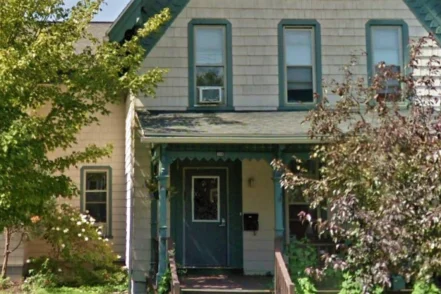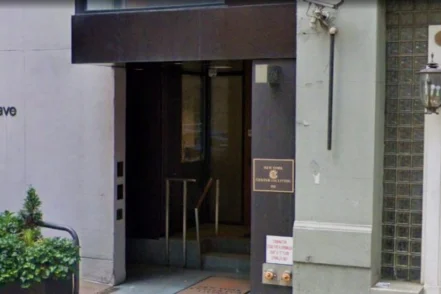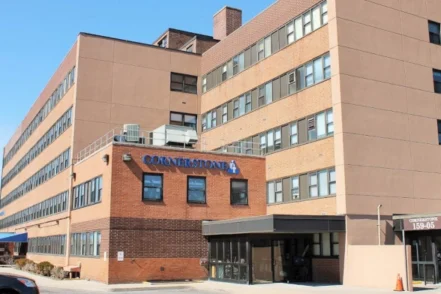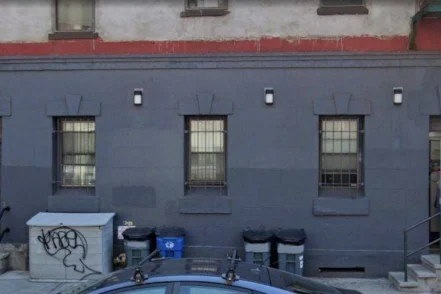About Mercy Medical Center Behavioral Health Rockville Centre
If you’re looking for part time addiction treatment for adults in Rockville Centre, New York, you can try the Mercy Medical Center Behavioral Health Rockville Center. You’ll get a full evaluation to see which service would benefit you most. If you need more intense treatment, they’ll refer you to one of their nearby residential programs.
If part time treatment will meet your needs, they’ll come up with a personalized plan for your recovery. If you’re addicted to opioids such as heroin, prescription painkillers or fentanyl, you will experience withdrawal symptoms during detox. If they are mild to moderate, they can give you medication to take them away. If your symptoms are severe or dangerous, they’ll recommend in-house medically supervised detox.
Once you’ve detoxed, you’ll start treatment. This is likely to include individual sessions with a counselor. They’ll help you figure out where your addictive behaviors started and what feeds them. You’ll work on plans and strategies to prevent relapse.
Some of your therapy will happen in a group setting. Group meetings give you the chance to meet others facing similar challenges. Some sessions will be more educational. Other group meetings give you an opportunity to support and encourage each other. You’ll share strategies for staying sober. You’ll also take part in creative art therapy.
What I like about them is their goal for each person. They aim to bring you back into a balanced state. This covers your physical, emotional and mental well being. Once you’re back in balance you’ll be ready to make a positive difference to your family and community.
Addiction Treatment Programs
Dual Diagnosis
People with a dual diagnosis may be using substances to self-medicate. A high-quality rehab in New York can address both issues and help you reach recovery. Along with traditional evidence-based substance use treatment, clients may receive mental health counseling, medication, peer support, and other tools to help them manage their mental health.
Adult Program
Adult programs in New York address a wide range of substance use issues while also helping clients with concerns such as raising children or building a career. Along with traditional evidence-based treatment, clients may receive employment support, parenting classes, and help securing housing.
Senior Rehab
For those who are older, a senior rehab in New York can give you the understanding and safety you need to break free from addiction. Along with traditional evidence-based treatment, clients may receive peer support, pain management education, and referrals to social services that can help with challenging aspects of daily life.
Young Adult Rehab
When people join a young adult rehab in New York, they learn key life skills while receiving treatment. Along with traditional evidence-based treatment, clients may receive educational support, employment training, and help securing housing.
Insurance Coverage
Medicaid
Paying for rehab in New York can be done in multiple ways, including using Medicaid if you qualify. Medicaid covers multiple levels of care, and you may have no out-of-pocket costs. However, you’ll need to choose a treatment center that accepts Medicaid.
Private insurance
There are many ways to pay for rehab in New York. One option is private insurance. Your insurance plan can pay for some or all of the costs of rehab, especially if you choose a center that’s in the plan’s network. Be sure to check with the insurer to get full details.
Self-pay options
There are many ways to pay for rehab in New York, including self-pay. When you pay yourself, you have maximum flexibility to choose the center you most prefer. You can write a check, get a medical loan from a bank or credit union, or send money electronically. The fee structure may vary depending on the level of care.
Financial aid
Those wondering how to pay for rehab in New York may benefit from looking for financial aid programs. You may be able to find aid through community groups in your area, and individual treatment centers may offer grants and scholarships as well.
Medicare
In New York, using Medicare to pay for rehab can allow you to get the care you need. Plans vary, so be sure to get all the details before you start treatment. You may have out-of-pocket costs such as deductibles and copays.
Levels of Care
- 1
Inpatient Rehab
Inpatient treatment in New York is led by professionals who help you build new habits and skills to live a substance-free life. Residential treatment allows you to build new relationships and begin to learn how to enjoy life without substance use.
Therapies
Cognitive Behavior Therapy
Cognitive behavioral therapy in New York involves being aware of how your thoughts are connected to your feelings and behavior. CBT is a common part of evidence-based treatment programs and may be a part of inpatient treatment, outpatient care, or both. CBT can be empowering as you learn to manage your thoughts and emotions rather than being overwhelmed by them.
Experiential Therapy
When you’re struggling with addiction in New York, nontraditional approaches can help you heal. Experiential therapy, which uses hands-on activities to work through emotions, is one example. Experiential therapy is commonly part of inpatient or intensive outpatient treatment and may be used to help with skill-building, addressing trauma, and managing substance use triggers.
Family Therapy
Many people have challenging family backgrounds, and addiction can create unhealthy dynamics as well. Family therapy in New York allows you to address these concerns. Some of the topics covered in family therapy include improving communication, developing healthy coping skills, avoiding codependency and enablement, and learning to support each other in healthy ways that foster recovery from addiction.
Group Therapy
It’s easy to feel isolated when you battle addiction, but group therapy in New York can show you you’re not alone. Group therapy is a normal part of evidence-based treatment programs, and may be a part of inpatient treatment, outpatient care, or both. Topics include addiction education, sharing of experiences, and learning new skills.
Individual Therapy
Individual therapy in New York can provide professional support and accountability as you work through substance use treatment. Individual therapy is a common part of both inpatient and outpatient substance use treatment and may be used to help with skill-building, overcoming trauma, and creating a substance-free lifestyle.
Trauma Therapy
Trauma is an emotional response to a terrible event, and some people use substances to numb those emotions. Trauma-informed therapy in New York can help you address what happened and consciously create a healthier response. Trauma-informed therapy sessions generally last 60 to 90 minutes and may include discussing a specific event, talking about emotional triggers, and learning emotional regulation and cognitive restructuring skills.
Location
Contact Mercy Medical Center Behavioral Health Rockville Centre
Top Drug Rehab Centers in New York
-
 New York
New YorkSeafield Outpatient Mineola
110 Main Street Mineola, New York 11501
-
 New York
New YorkCredo Community Center Mens Aftercare Community Residence
138 Winthrop Street Watertown, New York 13601
-
 New York
New YorkNew York Center for Living
226 East 52Nd Street New York, New York 10022
-
 New York
New YorkCornerstone Fresh Meadows
159-05 Union Turnpike Fresh Meadows, New York 11366
-
 New York
New YorkLong Island Center for Recovery LICR
320 West Montauk Highway Hampton Bays, New York 11946
-
 New York
New YorkBronx VA James J Peters Medical Center
130 West Kingsbridge Road Bronx, New York 10468
-
 New York
New YorkBronx Addiction Treatment Center
1500 Waters Place, Building 13 Bronx, New York 10461
-
 New York
New YorkTully Hill Treatment and Recovery
5821 Route 80 Tully, New York 13159
-
 New York
New YorkElmhurst Hospital Center Elmhurst
7901 Broadway Street Elmhurst, New York 11373
-
 New York
New YorkSaint Josephs ATRC Saranac Lake Outpatient Clinic
12983 Saranac Lake, New York 12983
-
 New York
New YorkRealization Center Brooklyn
175 Remsen Street Brooklyn, New York 11201
-
 New York
New YorkParallax Center
145 East 32nd Street New York, New York 10016
-
 New York
New YorkLaFayette Medical Approach Outpatient
233 Lafayette Street New York, New York 10012
-
 New York
New YorkNewYork Presbyterian Westchester Division
Nichols Cottage Basement Area 21 Bloomingdale Road White Plains, New York 10605
Other Popular New York Cities
Browse by New York cities
- Wainscott
- Walden
- Walton
- Wantagh
- Wappingers Falls
- Warsaw
- Waterloo
- Watertown
- Watkins Glen
- Waverly
- Webster
- Wellsville
- West Babylon
- West Haven
- West Haverstraw
- West Hempstead
- West Seneca
- Westbury
- Westhampton Beach
- Westons Mills
- White Plains
- Willard
- Williston Park
- Wingdale
- Woodmere
- Woodside
- Woodstock
- Wyandanch